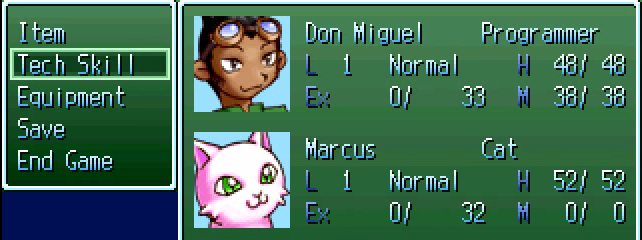Episode 6 - Shawn Hargreaves
Shawn Hargreaves talks about the Allegro game programming library and the community that sprung up around it in the late 1990s. We talk about what happens when your hobby project accidentally turns into something with a life of its own, the inexplicable popularity of games involving the murder of Barney the Dinosaur, and the vital role of accessible tooling in providing a path to learning.
Episode 5 - Leonard Richardson
Leonard Richardson talks about a number of free and open-source games he made, as well as his time running a goofy BBS as a kid. We discuss the experience of having dozens of strangers create their own riffs of a game he tossed together in a couple of days, writing interactive fiction as a stepping stone to writing non-interactive fiction, and Nethack code patches as a form of fanfiction.
Episode 4 - Jonah Davidson
Jonah Davidson talks about his time as part of the rpg2knet RPG Maker community. We talk about the desire to push the limits of the tool's strange constraints, the rite of passage of dealing with terrible translations, and how a community can spend a lot of effort trying to emulate the games it loves, only to slowly discover that the games that break out are the ones that are nothing like them.
Episode 3 - Roman Banias
My childhood best friend Roman Banias talks about the games he made for fun as a young child. We discuss the magic and wonder of type-in programming books, the home computer as a toy, the act of creation as a natural extension of childhood play, and the Alien Zit Cinematic Universe.
Episode 2 - Phil Salvador
Phil Salvador of The Obscuritory talks about his tenure as an administrator of the Mario Fan Games Galaxy. We discuss the driving energy behind goofy joke games, the fragile nature of early internet communities, the interconnected nature of fan sites, and Waligie, a community icon born from a random poster's terrible spelling.
Episode 1 - Kirk Israel
Kirk Israel talks about JoustPong, a game he has made and remade many times over the years. We dive into the homebrew community surrounding the Atari 2600 in the early 2000s, the strain of obsessive assembly coding on relationships, and the challenge of finding a supportive community.





